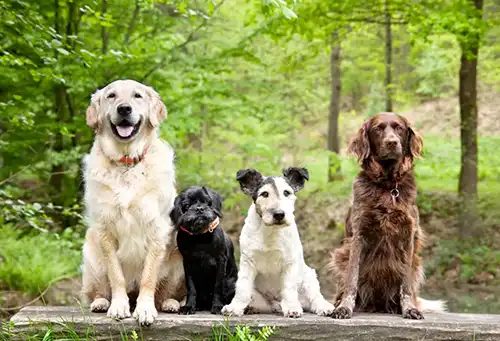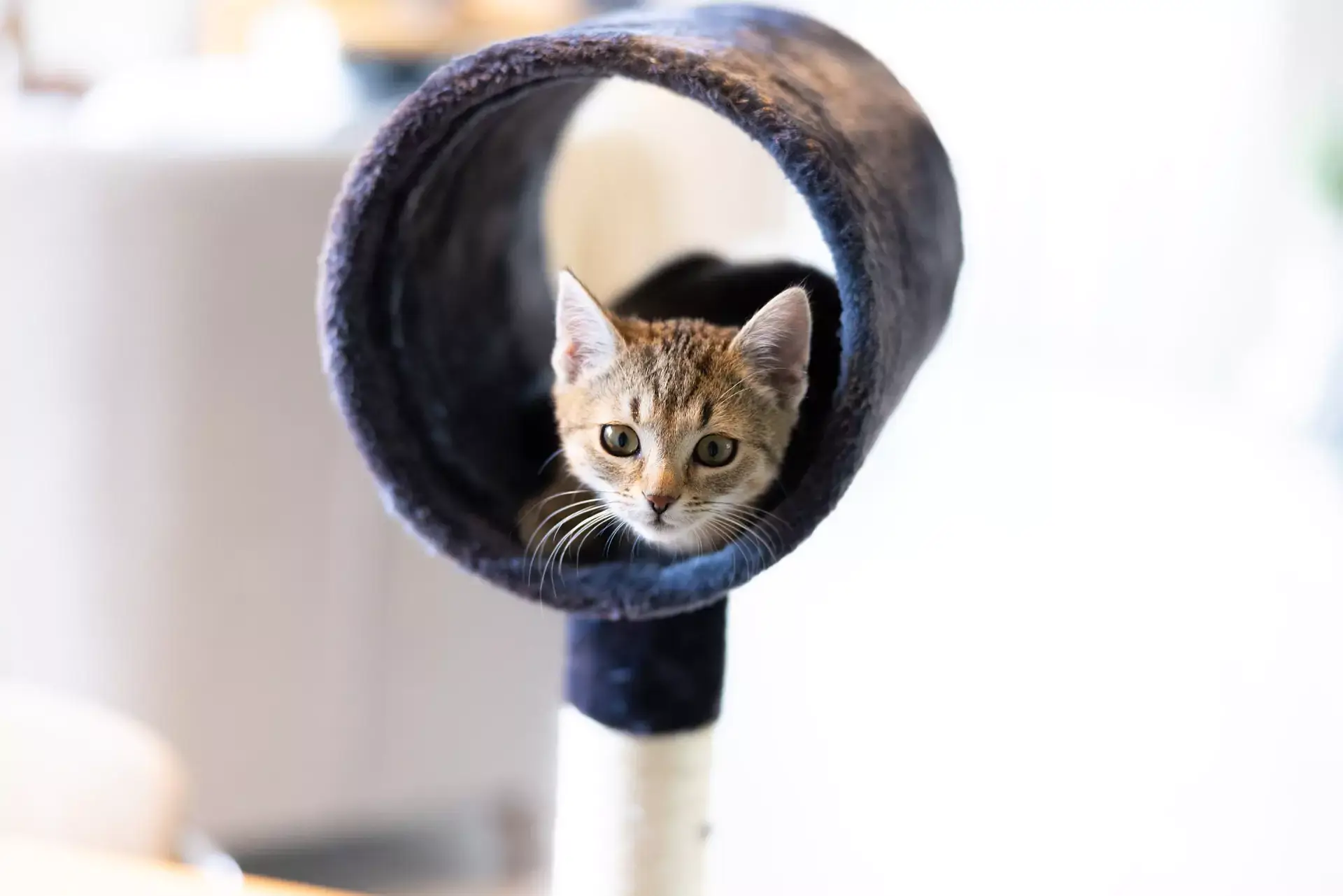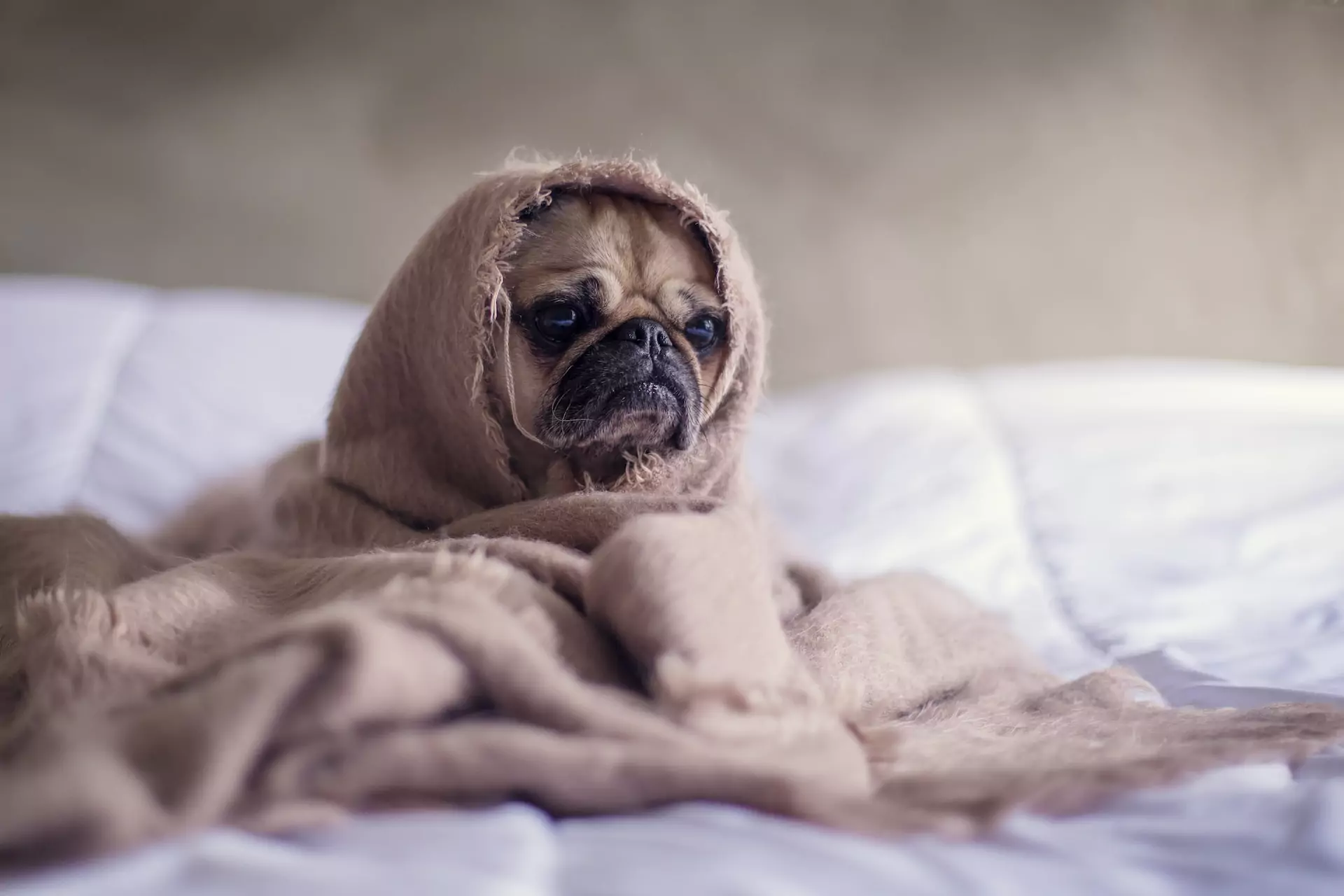As our feline friends age, their needs change in ways that aren’t always immediately apparent. To keep your senior cat happy, it’s crucial to adapt your care routine to meet these evolving requirements. Older cats may experience decreased mobility, altered appetite, or shifts in behavior due to aging or underlying health conditions. By recognizing and addressing these changes, you can enhance their quality of life and ensure they remain comfortable and content. This includes providing a nutrient-rich diet tailored for seniors, creating a safe and accessible environment, and engaging in gentle play to stimulate their minds and bodies. Regular veterinary check-ups become even more important to catch and manage any health issues early on. In this article, we’ll delve into evidence-based strategies to help you keep your senior cat happy, ensuring their golden years are filled with purrs and affection.
Is your feline pal officially a furry, meowing senior? Fluffy is super cute at every stage of her life. While it’s hard to beat that adorable kitten phase, senior cats are also very lovable and charming. By the time your feline pal reaches her golden years, she’ll probably have stopped some of her habits, and will spend the majority of her time sleeping. Of course, she will still need good TLC. A local Guelph, ON vet offers some advice on keeping a senior cat happy in this article.
How Do I Care For An Older Cat?
For the most part, Fluffy will have the same care needs as any other kitty.
Diet: Good kitty care starts with good food. You’ll want to talk to your vet about your kitty’s diet, and get some tips about when and how to change over to a senior-formula food. Be careful with portion sizes! Overfeeding your pet even by a little bit can cause her to gain extra weight.
Grooming: While cats are naturally good at keeping themselves clean, aging can make it harder for them to reach certain areas of their bodies. To keep your senior cat happy, give her a helping hand by gently brushing her fur. This removes dead hair and dander, ensuring she stays comfortable and well-protected from temperature changes. Regular grooming also strengthens your bond and makes her feel cared for in her later years.
Safety: Older cats aren’t as strong or lithe as their younger counterparts. While we recommend keeping all kitties indoors, this goes double for seniors, as they may not be fast enough to run up a tree or get out of the way of an oncoming car. Plus, older kitties sometimes get confused and forgetful. Fluffy could lose track of her whereabouts, and not be able to find her way home!
How Do I Make An Older Kitty Comfortable?
Just like people, older cats often get quite stiff and sore. This can make it hard for Fluffy to jump and climb. She may also have trouble reaching her favorite napping spots. One thing that will help your furry senior out is to get footstools or pet ramps or stairs.
Fluffy will also appreciate having a variety of napping spots. She won’t mind snoozing on your bed or couch, but it would also be good for her to have some beds of her own.
We’d also recommend giving your furry pal a comfy window seat with a good view. Cats love watching birds and squirrels!
Why Does My Senior Cat Seem Sad?
There’s no universal answer to this one. Kitties are very emotional, and they are also quite unique. For example, if Fluffy has recently changed owners, she may be missing her former family. If that is the case, your pet may very well be sad.
It’s also possible that Fluffy isn’t sad at all, but just less energetic and frisky than she once was. This is quite normal for older cats: we all slow down over time. However, if your pet seems distinctly morose, sullen, or grumpy, that may be an indication of a medical issue. Contact your vet right away.
How Do I Know If My Senior Cat Is Happy?
Cats can sometimes be puzzling companions. Fluffy, for instance, is known to bite playfully, just for fun. Many cats stay energetic and playful even as they age. If your senior cat remains interactive, alert, and responsive, it’s a great indicator of their well-being. When your pet enjoys letting her inner kitten out, it shows she’s feeling happy and healthy. Offering affection through purrs and cuddles is another way to keep your senior cat happy and content.
How Do You Keep An Elderly Cat Entertained?
Fluffy will probably have outgrown her desire for whacking toys around in the middle of the night, and she won’t get as excited to find a moth in the kitchen as she once did. However, she’ll still enjoy and benefit from playing.
Hold a laser pointer or feather toy for your furry pal to pounce on. This will not only help keep your pet strong and fit, it also offers mental stimulation. That’s very important! Just like people, cats can suffer from cognitive decay.
Don’t worry about overdoing it: even a few minutes a day will be beneficial. If your kitty gets tired, she’ll just walk away and take yet another nap.
How Do I Make My Home Comfy For My Senior Cat?
There are a few things you can do to keep your senior cat happy. We’ve already mentioned beds, but it’s worth repeating. For older cats, having plenty of comfortable napping spots is always a good idea. Another suggestion is to get Fluffy a litterbox with low sides, which is often easier for senior cats to use compared to standard ones.
You may also want to set out extra water stations and litter boxes, and perhaps put out a nightlight for your furry pal to help her get around after dark.
Your feline friend will also appreciate a comfy window seat, preferably one with a good view.
How Do I Know If My Elderly Cat Is Healthy?
Your vet should be the ultimate authority on this.
As your pet ages, you’ll need to keep a close eye out for signs of sickness. Just like people, older cats are at higher risk of developing certain diseases.
Some of the things to watch for include the following:- Behavioral changes
- Different sleep patterns
- Vision Loss
- Decreased mobility
- Weight loss/gain
- Increased thirst
- Appetite Changes
- Litterbox Woes
- Lethargy
- Withdrawal
- Uncharacteristic grumpiness
- Vomiting
- Trouble eating
- Disorientation
- Excessive grooming
- Increased vocalization
- Low activity levels
- Unkempt coat
If you notice any of these, contact your vet right away. Cats try to mask signs of illness, so you may not notice anything is wrong until your pet is quite ill!
If and when Fluffy is diagnosed with something specific, then you’ll be able to get more precise information from your vet about what to look for.
Why Does My 17-Year-Old Cat Keep Meowing?
It’s not uncommon for older cats to get rather vocal. There are a few possible reasons for this. There’s a chance that your pet could be reacting to pain, so be sure to have her examined by your vet. This is especially important if it’s something that you’ve just noticed.
There’s also a chance that your kitty is feeling scared or confused. Fluffy will notice changes as she ages, and may be distressed by them. She may also just want to be comforted more. Pay lots of attention to her, and don’t skimp on those cuddle requests! Just be very gentle, especially when picking your pet up or putting her down.
What Age Is Old For A Cat?
The average kitty lifespan is 12 to 18 years. Of course, 15 or 16 is definitely a pretty ripe old age for Fluffy. At this point, your pet would be considered geriatric. However, don’t focus too much on the numbers. It’s not uncommon for cats to live well into their late teens or even early twenties these days. Your feline pal may still have years worth of pounces and purrs ahead of her.
Keep Your Senior Cat Happy in 2025: Preparing for Vet Visits and Adjusting Care
How can owners prepare for veterinary visits with senior cats?
Owners can prepare for veterinary visits with senior cats by closely monitoring their pets for any signs of illness or behavioral changes, such as altered sleep patterns or appetite fluctuations. Before the appointment, compile a list of observations and questions to discuss with the veterinarian. Gently acclimate the cat to the carrier by placing familiar bedding inside to reduce stress during transport. Ensure the cat is handled carefully, as older cats may be stiff or sore. Scheduling appointments during quieter clinic hours can help minimize anxiety. Providing a calm environment throughout the process will make the experience more comfortable for both the cat and the owner.
What changes in diet and nutrition are needed for senior cats?
Senior cats require a diet that supports their aging bodies and changing metabolism. Transitioning to a senior-formula food is recommended, as these diets are specifically formulated with lower calories to prevent weight gain, while still providing the necessary nutrients. Portion control is vital, as even small overfeedings can lead to unhealthy weight. Additionally, maintaining a balance of high-quality protein and fat helps support lean muscle mass and overall energy levels. Regular consultation with a veterinarian ensures that the diet remains suitable as the cat’s needs evolve with age.
How can owners help senior cats maintain a healthy weight?
Owners can help senior cats maintain a healthy weight by providing a balanced diet tailored to their age and specific needs. It’s recommended to consult a vet about transitioning to senior-formula cat food, which typically contains the right nutrients for aging cats. Portion control is vital to prevent overfeeding, as even small excesses can lead to weight gain. Regular play sessions, even brief ones, can promote physical activity and mental stimulation. Monitoring the cat’s weight and adjusting feeding habits based on activity levels will also help prevent obesity.
How should grooming routines change for senior cats?
As cats age, their grooming routines may need extra support due to reduced flexibility and mobility. Older cats often struggle to groom hard-to-reach areas, leading to discomfort or skin issues. To assist, regularly brush your senior cat to remove dead fur and dander, promoting a healthier coat and regulating body temperature. Additionally, gentle grooming helps prevent mats and tangles, which can cause irritation. Regular brushing sessions also provide an opportunity to check for any skin abnormalities or changes in coat condition, which could indicate underlying health concerns.
How can owners provide mental stimulation for senior cats?
Owners can provide mental stimulation for senior cats by engaging them in gentle play sessions using toys like laser pointers or feather wands. Even a few minutes of daily play helps keep them mentally active and can prevent cognitive decline. Providing a comfortable window seat with a good view allows cats to watch birds and squirrels, offering entertainment and mental engagement. Introducing new toys or puzzle feeders can also stimulate their curiosity and keep their minds sharp. Regular interaction, affection, and gentle grooming sessions further contribute to a stimulating environment for senior cats, helping them stay happy and healthy.
Do you have questions about senior cat care? Please do not hesitate to contact us. As your local Guelph, ON animal clinic, we are here to help!






!Social Media Icons